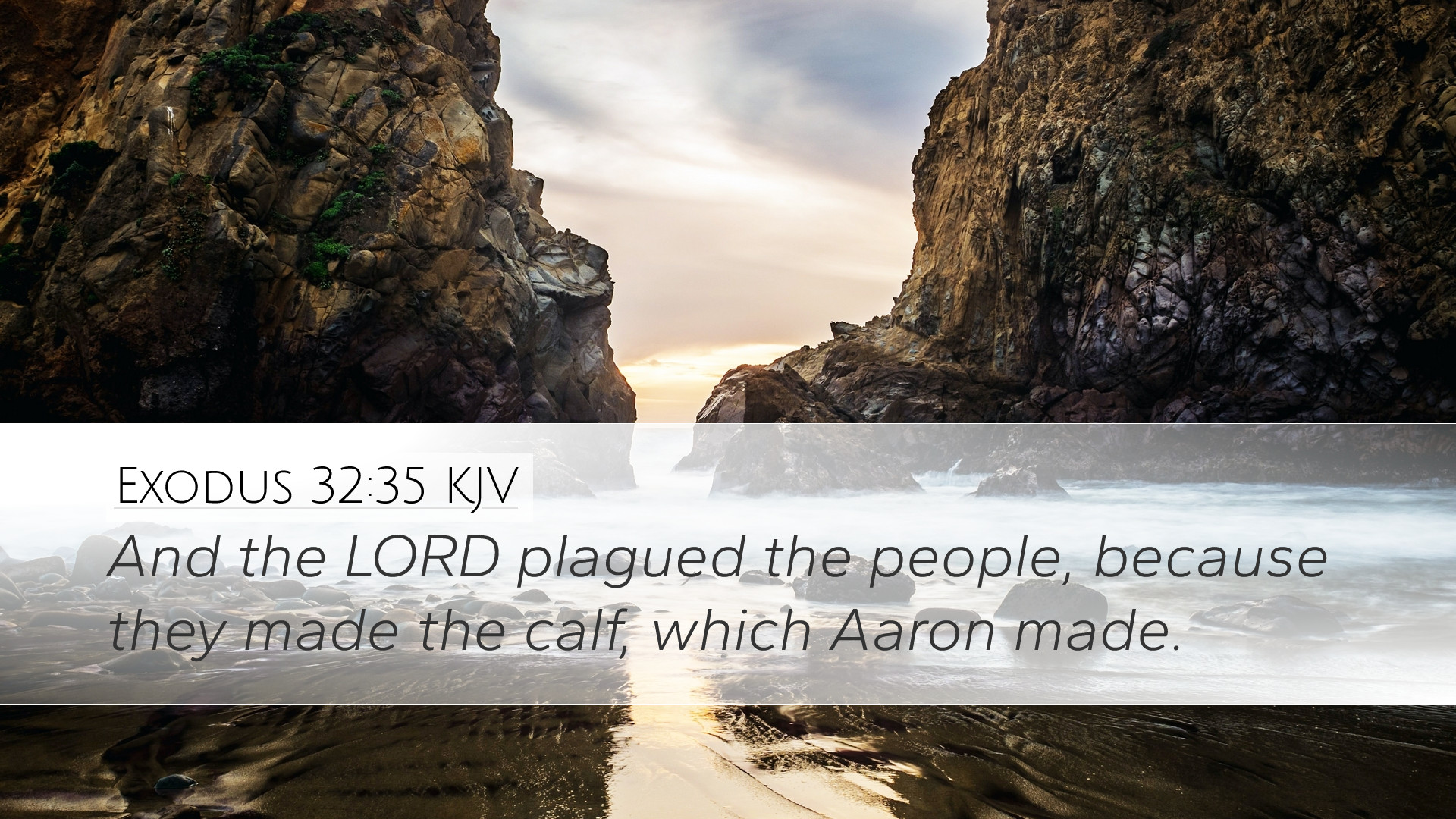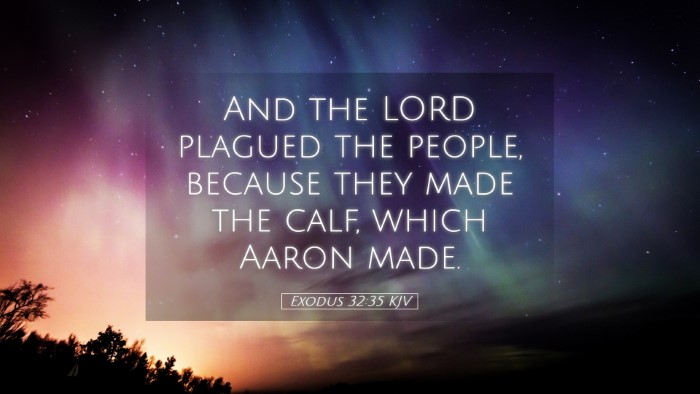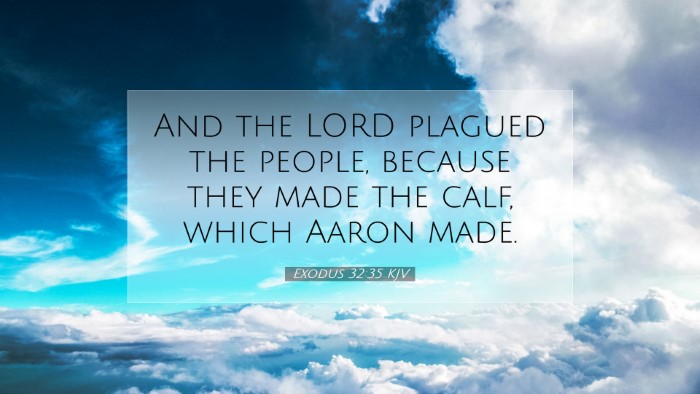Exodus 32:35 Commentary
The verse Exodus 32:35 states: “And the LORD plagued the people, because they made the calf, which Aaron made.” This passage marks a significant moment in the Israelites' journey, revealing God's response to the grievous sin of idolatry committed by His people. The following commentary draws insights from notable public domain commentators.
Contextual Overview
To understand Exodus 32:35 properly, it is essential to consider the context surrounding the Israelites’ transgression. The golden calf incident exemplifies the deep-rooted inclination of humanity towards idolatry and disobedience to God’s commandments. After Moses had ascended Mount Sinai to receive the Law, the people, feeling abandoned, turned to Aaron and urged him to create gods for them. In their impatience and fear of uncertainty, they allowed their faith to falter, leading to the worship of a false idol.
Key Insights
This commentary elaborates on the implications of Exodus 32:35, emphasizing several theological and moral insights.
1. The Nature of God’s Judgment
Matthew Henry notes that God's plague upon the people was a direct consequence of their sin. Henry emphasizes that divine judgment often follows idolatry—wherein God's holiness cannot tolerate rebellion and infidelity. This judgment serves as both punishment and a means of purging the faith community of its impurities.
2. Human Fragility and Idolatry
Albert Barnes highlights the fragility of human faith in times of trial. The Israelites’ quick turn to idolatry showcases the depth of sin in the human heart and the ease with which people can abandon their faith. This vividly illustrates that even those who have received numerous revelations and deliverances from God are susceptible to gravitating towards falsehood in the absence of visible leadership.
3. The Role of Leadership
In his commentary, Adam Clarke stresses the significance of responsible leadership. Aaron, as the appointed priest, failed in his duty by yielding to the people's demands. Clarke suggests that this incident symbolizes the failures of leadership and its consequences, advocating for leaders to guide their followers toward true worship and reliance on God.
4. The Seriousness of Sin
This verse invites reflection on the grave nature of sin. The choice to make and worship an idol in place of God communicates a lack of reverence and acknowledgement of His sovereignty. Matthew Henry comments that the seriousness of this rebellion necessitated severe repercussions to maintain divine justice and holiness among God’s people.
5. God’s Desire for Repentance
While judgment is depicted in this verse, it also leads to an opportunity for repentance. When confronted with their sins, the Israelites were given a chance to turn back to God after experiencing the consequences. Albert Barnes asserts that God’s discipline often aims to bring about contrition and restoration rather than mere punishment.
Theological Implications
The events surrounding the golden calf reveal aspects of God’s character that are crucial for one’s theological understanding:
- God’s Holiness: Exodus 32:35 reaffirms that God’s holiness demands accountability from His people.
- The Importance of Fidelity: The verse emphasizes the need for fidelity to God, highlighting that spiritual unfaithfulness has severe implications.
- Redemptive Purpose: Even in discipline, God’s ultimate aim is restoration; His covenant remains steadfast despite human failure.
Practical Reflections
In applying this verse to contemporary faith contexts, several lessons emerge:
- Vigilance Against Idolatry: Just as the Israelites succumbed to idolatry, modern believers must guard against anything that takes precedence over God in their lives.
- The Call for Strong Leadership: Faith leaders must seek to remain aligned with God’s will, guiding their communities with integrity and firmness in faith.
- Embracing Accountability: Acknowledging sinfulness and its consequences is essential for spiritual growth; believers must be willing to accept God’s discipline as a pathway to deeper faith.
Conclusion
Exodus 32:35 serves as a historical reminder and a spiritual challenge, reflecting on the nature of sin, the seriousness with which God treats disobedience, and the constant call towards fidelity. It exhorts believers to maintain their focus on the true God, reject the temptations of idolatry, and to seek genuine repentance when they falter. This verse, combined with the insights of biblical commentators, reinforces the urgency for vigilance in faith.


